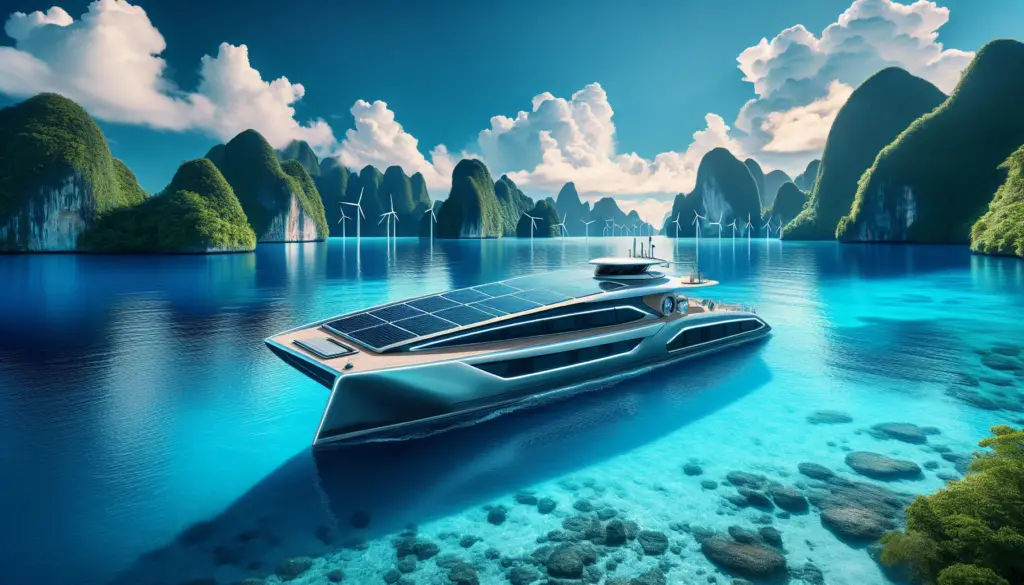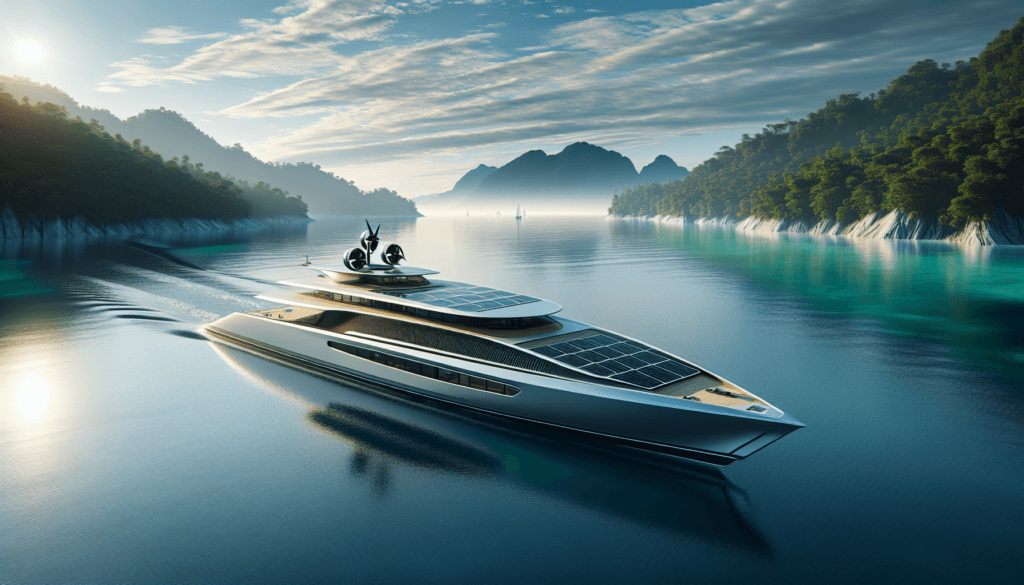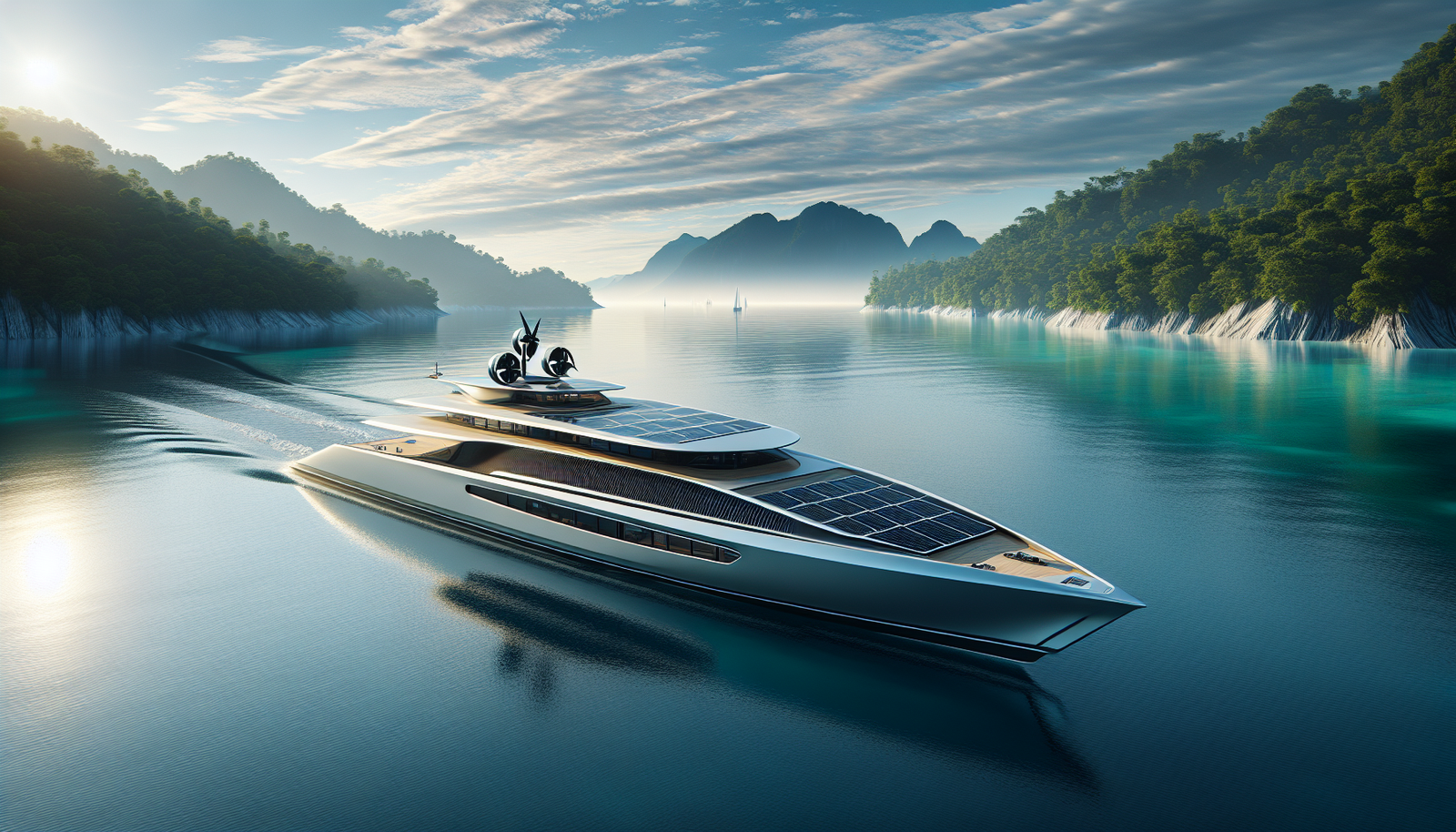Imagine being able to cut through the open waters without leaving an eco-footprint behind. As sustainable practices continue to influence every corner of our lives, the boating industry is no exception. In the article “The Future Of Sustainable Boating: Advancements And Innovations”, you’ll explore the cutting-edge technologies and designs shaping the maritime world. From solar-powered yachts to self-cleaning hulls, exciting changes are on the horizon, offering a glimpse of a future where yachting plays its part in protecting our oceans. Here’s your chance to catch a wave of knowledge about the evolution of boats in tune with Mother Nature.
Current State of the Boating Industry
The boating industry has been a significant part of the leisure and recreation sector, as well as the trading and transportation sector for centuries. However, like most industries, it’s currently facing a great deal of scrutiny due to its environmental impact. Traditional boating practices have been linked to various environmental issues, leading to a push for more sustainability.
Environmental Impact of Traditional Boating
The negative environmental impact of traditional boating primarily stems from the use of fossil fuels. Combustion engines, which power most boats, emit carbon dioxide, nitrogen oxides, and other pollutants that contribute to global warming. Moreover, the materials used in boat construction, from fiberglass and other synthetic materials, are often non-biodegradable, adding to the problem of solid waste.
Push for Sustainability in Boating
The growing awareness about the environmental impact of boating has resulted in calls for sustainable practices within the industry. This push isn’t just about reducing emissions or using recyclable materials. It’s also about preserving marine ecosystems, promoting responsible use of resources, and ensuring the longevity of the industry.
Understanding Sustainable Boating
Before we delve into the nuances of sustainable boating, let’s thoroughly understand what it means and why it’s so crucial right now.
Definition of Sustainable Boating
Sustainable boating refers to practices that minimize detrimental effects on the ecosystem and maximize positive contributions to society and the economy. This involves adopting renewable energy sources, using eco-friendly materials, implementing cleaner propulsion systems, and promoting better waste management practices.
Importance of Sustainable Boating
The importance of sustainable boating can’t be stressed enough. With climate change at the forefront of global concerns, industries need to evolve to lessen their environmental footprint. The boating industry, in particular, has a significant role to play in protecting marine life and keeping our oceans, rivers, and lakes clean.

Emerging Trends in Sustainable Boating
Several innovative trends are beginning to reshape the boating industry in a more sustainable direction. The transition isn’t rapid, but it’s consistent and inspiring.
Shift Toward Eco-Friendly Materials
Many manufacturers are turning away from traditional, non-recyclable materials and moving toward eco-friendly alternatives. Hemp, flax, and recycled fibers are becoming more common, and natural resins, too, are gaining popularity as they offer good performance and a lower environmental impact.
Increasing Use of Solar and Wind Power
Harnessing nature’s energy is a promising trend in sustainable boating. More and more boat designers are incorporating solar panels and wind turbines in their designs. This not only reduces reliance on fossil fuels but also creates a more efficient power system.
Progress in Battery Technology
Battery technology plays a significant role in the sustainable boating evolution. With improvements in energy storage, we are seeing more efficient and longer-lasting batteries that make electric boats a more feasible option.
Growing Demand for Electric Boats
Electric boats are gaining momentum as they offer a cleaner alternative to traditional marine engines. They produce no emissions, run quietly, and require less maintenance. Many boaters find these features attractive, leading to increased demand for electric boats.
Innovations in Boat Design
Innovation in boat design is vital for the sustainable boating movement. These developments are not only about how boats look but also how they function.
Incorporation of Biomimicry
Biomimicry, or imitating nature’s designs and processes, is a growing trend. This could be as simple as mimicking the hull shape of a fish for more efficient movement, or as complex as developing a self-cleaning system inspired by certain marine creatures.
Development of Hydrofoil Systems
Hydrofoils reduce drag by elevating the boat above the water, thereby increasing speed and efficiency. As they reduce the energy required for propulsion, they’re seen as a beneficial addition to sustainable boats.
Introduction of Multi-Hull Designs
Multi-hull designs are not new, but they’re increasingly seen as a sustainable choice due to their efficiency and stability. The additional hulls provide more buoyancy and reduce resistance, making them ideal for high-speed, low-energy boating.
Use of Lightweight Materials
In the quest for more efficient and sustainable boats, designers are continuously experimenting with lighter materials. Reduced weight means less power is required to move the boat, thus saving energy.

Advanced Propulsion Technologies
The propulsion system is key to a boat’s performance and it is particularly relevant in sustainable boating, where it’s all about efficient power use.
Electric Propulsion Systems
Electric propulsion systems are a major breakthrough for sustainable boating. They do not emit any pollutants, make minimal noise, and are far more efficient than traditional internal combustion engines.
Hybrid Propulsion Systems
A hybrid system combines an internal combustion engine with an electric motor. It provides flexibility, allowing boaters to switch between the two propulsion methods based on their needs.
Hydrogen Fuel Cells
This is an emerging technology where electricity is produced by reacting hydrogen and oxygen. The only by-product is water, making it an appealing sustainable alternative to fossil fuels.
Solar-Powered Boats
Solar power has exciting potential in sustainable boating.
Advancements in Solar Technology
New developments in solar technology favor boating. The increasing efficiency of solar cells, their decreasing cost, and their durability make them an attractive power source for boats.
Real-Life Examples of Solar-Powered Boats
Many solar-powered boats are already in operation around the world. From small leisure boats to large tourist vessels, they exemplify the viability of solar power in boating.
Challenges and Future Prospects for Solar-Powered Boating
Despite the progress, challenges remain, particularly concerning energy storage and the reliability of solar power. Regardless, the future looks bright for solar-powered boating thanks to continuous innovations and growing interest in the field.
Wind-Powered Boats
The oldest form of powered boating, wind power, is experiencing a resurgence.
Revival of Sail Boating
With sustainability in focus, sail boating is gaining renewed interest. Modern materials and design techniques are improving sail performance and efficiency, making it a viable option again.
Technology Adaptations in Sails
There are exciting developments in sail technology. The use of advanced materials, dynamic shaping, and even automated control systems are taking sailing into the future.
Policy and Regulations Impacting Sustainable Boating
Policies and regulations can dramatically influence the direction and speed of change in an industry. The boating sector is no different.
International Maritime Organization’s Mandates
The International Maritime Organization (IMO) is at the forefront of driving sustainable practices in the marine industry. Their regulations are prompting upgrades to propulsion systems, hull designs, waste disposal systems, and more.
Regional Boat Manufacturing Standards and Laws
Different regions have their specific manufacturing standards and laws aimed at promoting sustainability in boating. They range from emission standards and waste management regulations to incentives for utilizing renewable energy and recyclable materials.
Role of Governments in Promoting Sustainable Boating
As with any industry, government support is crucial to encourage sustainable boating practices. Their policies and funding programs can incentivize businesses and consumers to make more environmentally friendly choices.
Economic Impact and Opportunities in Sustainable Boating
The shift towards sustainable practices isn’t just beneficial for the environment but also for the economy.
Market Outlook
The sustainable boating market is predicted to grow significantly over the coming years. Factors contributing to this include increasing environmental awareness, advances in technology, and supportive government policies.
Job Opportunities
Transitioning to sustainable practices creates jobs. It leads to the emergence of new roles in areas such as renewable energy technology, eco-friendly materials production, and sustainable boat design and manufacturing.
Investment Potential in Sustainable Boating Technology
Innovations in sustainable boating offer ample investment opportunities. Investors see the potential for strong returns in the growing market, making it an exciting space to watch.
Challenges and Potential Solutions in Sustainable Boating
Despite the progress and opportunities, there are challenges that the industry needs to overcome to fully embrace sustainability.
Technical and Engineering Challenges
Designing, building, and maintaining sustainable boats require expertise and knowledge in various fields. Solving the technical and engineering problems associated with this is a significant challenge but also a chance for innovation and creativity.
Issue of Cost and Affordability
Sustainable boats often come with higher upfront costs because of the technology and materials involved. Making them more affordable will be crucial for their wider adoption.
Addressing Consumer Perceptions about Sustainable Boating
Consumers need to understand the benefits of sustainable boating and feel confident in the technology. Increasing education and awareness about these boats is crucial to changing perceptions and encouraging adoption.
The future of sustainable boating is indeed bright and inspiring. With continuous advancements, increasing support from policy makers, and growing awareness among consumers, it is poised to revolutionize the boating industry as we know it.

